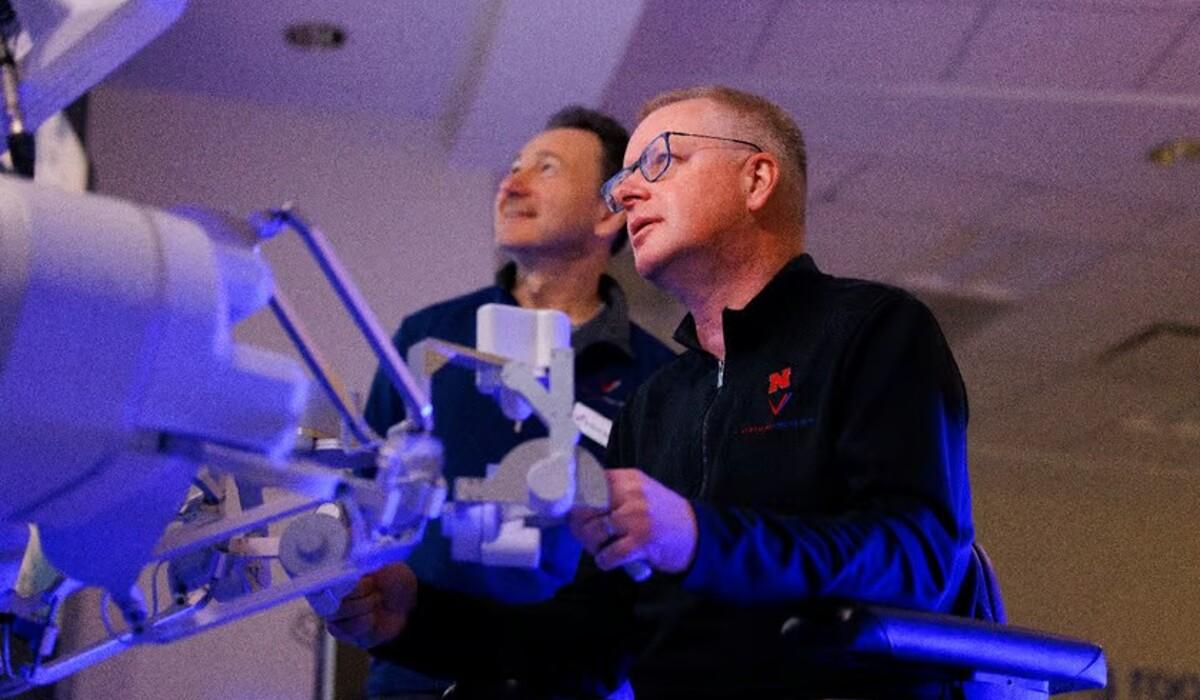Six doctors from Nebraska have achieved a significant feat by operating a surgical robot aboard the International Space Station (ISS). Although the operation was conducted on rubber bands, it marks a milestone with potential implications for future space missions to Mars and rural medical facilities on Earth.
The robotic surgical arm, named spaceMIRA (miniaturized in vivo robotic assistant), was transported to the ISS earlier this year via a SpaceX rocket, developed through collaboration between the University of Nebraska-Lincoln (UNL) and Virtual Incision, a private company. Upon arrival, the arm was unpacked and utilized by doctors on Earth who remotely controlled it to perform slicing and grabbing maneuvers mimicking surgery on human tissue.
Measuring 30 inches in length and weighing 2 pounds, the arm is compact and lightweight, housed in a box resembling a microwave, where the testing occurred. Equipped with a camera, surgeons could manipulate the arm to interact with 10 rubber bands simulating tissue.
The testing took place at Virtual Incision’s headquarters in Lincoln, Nebraska, with NASA’s Payload Operations Center at Marshall Space Flight Center in Huntsville, Alabama, overseeing mission control. Over a two-hour period, six surgeons took turns operating the arm successfully.
Despite experiencing a latency of 0.5 to 0.75 seconds, all participants accomplished the task. To address latency, researchers adjusted scaling factors, ensuring smoother movements. Michael Jobst, a colorectal surgeon based in Lincoln, highlighted the slower pace of movements compared to traditional operating rooms but emphasized successful precision in making 20 cuts without damaging the arm.
“You have to wait a little bit for the movement to happen, it’s definitely slower movements than you’re used to in the operating room,” said Michael Jobst.
The test’s success not only demonstrates the potential for space surgeries on longer missions like those to Mars but also suggests applications for remote medical procedures on Earth, particularly in areas lacking onsite surgical teams. Shane Farritor, UNL professor and Virtual Incision co-founder leading spaceMIRA’s development, emphasized its relevance for healthcare facilities on the ground.
Virtual Incision described the experiment as a resounding success with minimal complications, foreseeing a transformative impact on the future of surgery. The ability to perform surgical tasks remotely in space and underserved regions on Earth promises to enhance medical accessibility and advance surgical capabilities beyond conventional limitations.
“SpaceMIRA’s success at a space station orbiting 250 miles above Earth indicates how useful it can be for health care facilities on the ground,” said Shane Farritor, the UNL professor and Virtual Incision co-founder who led spaceMIRA’s development.
“The experiment was deemed a huge success by all surgeons and researchers, and there were little to no hiccups,” said Virtual Incision in a statement. The company added that the advance is set to “change the future of surgery.”

